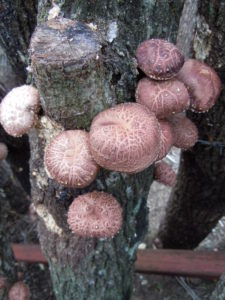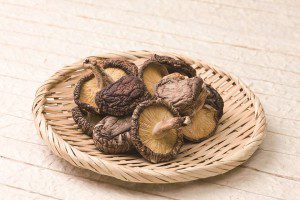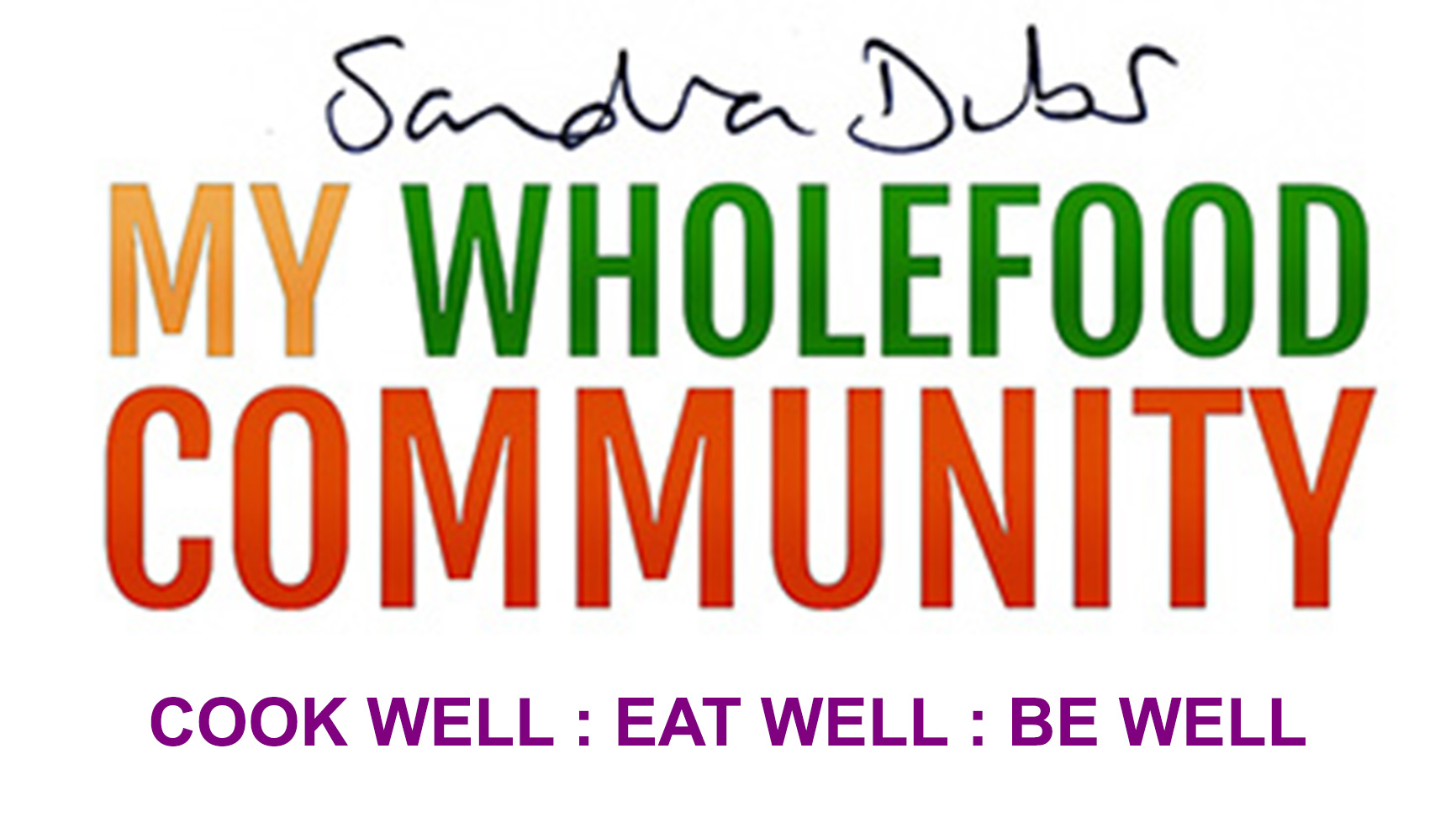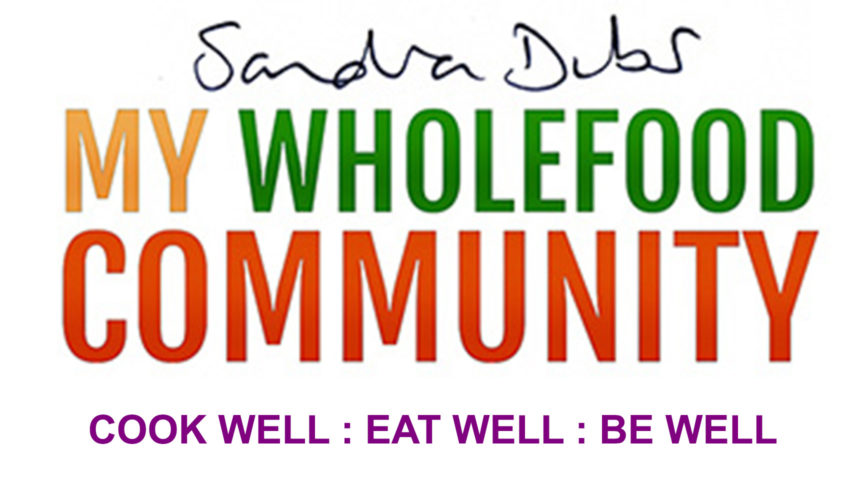Medicinal Mushrooms
My chat with Libbi Gorr on radio Melbourne ABC774 will be posted here soon so please return

Shiitake cultivation in Japan began centuries ago when wild shiitake was collected in the forest .The mushroom was found on fallen trees during the spring and autumn. “Shiitake” means “mushrooms of the shii tree,” one of the fallen trees (closely related to oak) on which shiitake grows.

Dried Japanese Shiitake Mushrooms
Mushrooms
Although most people think of mushrooms as vegetables, they’re in fact a type of beneficial fungus. The term “mushroom” refers to any macro fungus with a distinctive fruiting body large enough to be seen with the naked eye and picked by hand. As of now, mushrooms constitute at least 14,000 different plant species — and perhaps way more. The number of mushroom species on the Earth is estimated to be 140,000, which suggests that scientists only know about 10 percent of the possible species at this time.
Although various types of mushrooms differ in terms of their exact calorie and nutrient count, in general they’re very low in carbohydrates (making them a natural for the low-carb or keto diet), calories, fat, sodium and sugar. Meanwhile, provide a high level of nutrients — especially antioxidants, energizing B vitamins, copper and selenium.
One cup of raw white button mushrooms has about the following in terms of nutritional value:
- 21 calories
- 3 grams protein
- Less than 1 gram fat
- 1 gram fiber
- 2 grams sugar
- 2 grams carbs
- 0.4 milligrams vitamin B2 riboflavin (23 percent DV)
- 5 milligrams vitamin B3 niacin (17 percent DV)
- 4 milligrams vitamin B5 pantothenic acid (14 percent DV)
- 0.3 milligrams copper (13 percent)
- 9 milligrams selenium (13 percent DV)
- 305 milligrams potassium (9 percent DV)
- 83 milligrams phosphorus (8 percent DV)
Some mushrooms also contain vitamin D, but generally only if they were grown in sunlight or exposed to ultraviolet light.
Health Benefits of Mushroom Nutrition
Today, around 700 mushroom species (out of the 14000-15000 known mushroom species) have established medicinal properties with a further 1100 species estimated to have medicinal potential, though all mushrooms have a certain amount of impact on the immune system.
Beta-glucans are a type of fiber that is found in the cell walls of many types of mushrooms. Recently, beta-glucans have been the subject of extensive studies that suggest they might improve insulin resistance and blood cholesterol levels, lowering the risk of obesity and providing an immunity boost.
Medicinal mushrooms are mushrooms that are used as medicine. They have been used to treat infection for hundreds of years, mostly in Asia. Today, medicinal mushrooms are also used to treat lung diseases and cancer. For more than 30 years, medicinal mushrooms have been approved as an addition to standard cancer treatments in Japan and China. In these countries, mushrooms have been used safely for a long time, either alone or combined with radiation or chemotherapy.
In Asia, there are more than 100 types of mushrooms used to treat cancer. Some of the more common ones are Ganoderma lucidum (reishi), Trametes versicolor or Coriolus versicolor (turkey tail), Lentinus edodes (shiitake), and Grifola frondosa (maitake).
Mushrooms are being studied to find out how they affect the immune system and if they stop or slow the growth of tumors or kill tumor cells. It is thought that certain chemical compounds, such as polysaccharides in turkey tail mushrooms, strengthen the immune system to fight cancer.
With so many species in existence— plus numerous compounds within each species that offer their own unique qualities, it’s hard to sum up the health benefits of mushroom nutrition and the perks you get when you eat them regularly.
Health benefits common to most types of mushroom varieties.
1. Fight Cancer. Known to be a natural cancer remedy and one of the best foods for increasing “natural killer cells” — the type of immune cells that seek out and destroy dangerous cancerous cells — mushrooms are praised as powerful anti-cancer foods.
2. Improve Immunity and Lower Inflammation .
According to a 2005 report published in the Journal of Evidence-Based Complementary and Alternative Medicine, mushrooms contain “compounds and complex substances with antimicrobial, antiviral, antitumor, antiallergic, immunomodulating, anti-inflammatory, antiatherogenic, hypoglycemic, and hepatoprotective activities.”
Mushrooms also have the natural ability to fight dangerous bacteria and viruses. In fact, mushrooms need to have strong antibacterial and antifungal compounds just to survive in their own natural environment, which is why it’s not surprising that these beneficial compounds can be isolated from many mushrooms and used to protect human cells.
Mushrooms are even shown to have special fighting abilities against deadly multi-resistant bacterial strains and microorganisms responsible for gut and skin problems. In fact, some substances present in common antibiotics given to people when they’re sick — including penicillin, streptomycin and tetracycline — are derived from mushroom fungal extracts.
3. Protect Heart Health
Eating more mushrooms is one way to lower cholesterol levels naturally. Many types of mushrooms help lower LDL “bad” cholesterol and keep arteries from hardening, which are risk factors for heart disease.
4. Support Energy and Improve Brain Function
Mushrooms are a great source of B vitamins, which help support adrenal function and turn nutrients from food into useable energy. B vitamin benefits include the ability to help with neurotransmitter function, which makes them stress-defying nutrients that help break through “brain fog,” prevent thyroid disorders and support a healthy metabolism.
Is chronic stress killing your quality of life? Certain types of mushrooms, especially reishi, are also considered adaptogens that lower cortisol, which means they can help your body to deal with stress and keep your mood more upbeat. Mushrooms can also lower inflammation that can trigger a decline in cognitive function, mood problems, low energy and age-related neurodegenerative diseases.
5. Help with Weight Management Studies find that regularly substituting mushrooms for meat might help you to lose weight, since mushrooms are a low-calorie, nutrient-dense food. Eating mushrooms several times per week is linked with a healthy body weight, reduced waist circumference and better overall health.
And while you’re working to improve your weight, mushroom nutrition benefits include the ability to protect your heart and vital organs from suffering the consequences of inflammation and imbalanced hormones.
6. Provide Vitamin D
While we know that vitamin D is best obtained from sun exposure, certain kinds of mushrooms can also provide a decent source of this important vitamin. Vitamin D deficiency is a serious problem for many people and linked to everything from heart disease to depression.
Exposing mushrooms to UV light, whether they’re grown outdoors or indoors under certain light fixtures, increases their concentration of vitamin D. Eating vitamin D-rich foods can help reduce your risk for cancer, heart disease, mood disorders and bone loss. Studies show that in addition to supplying vitamin D2, mushrooms can also produce vitamin D3 (the kind best utilized by humans) and vitamin D4.
Unique Benefits for Different Types of Mushrooms
Here are the major types of disease-fighting mushrooms you should try to regularly include in your diet for their protective, immune-enhancing effects:
REISHI MUSHROOMS have been used for thousands of years as a way to fight chronic disease. Today, we know from scientific studies that they’re in fact capable of doing what the Chinese have always speculated they could: fighting inflammation, cancer, heart disease, hormonal imbalances, neuro-degenerative problems, mood disorders and more.
Reishi mushrooms, a type of bitter, woody fungi, are known as one of the top natural superfoods in existence. Reishi mushrooms are a type of powerful adaptogen that help the body deal with stress, whether physical or psychological, so they’re a natural remedy for anxiety.
When taken in tincture, capsule or tablet form, they have the unique ability to increase energy and also bring on a feeling of calm at the same time, making them an all-around mood booster and “brain food.” They can help heal adrenal fatigue and are sometimes called the “medicine of kings” because they can improve memory and concentration while also helping bust stress and facilitate restful sleep.
How do reishi mushrooms do so much? Their beta-glucans increase the immune system’s T-cell levels, which means they help lower inflammatory responses caused by stress, stimulants, a poor diet or other environmental factors. This is especially beneficial for people suffering from immune disorders or adrenal or chronic fatigue.
This immune boost that you receive from reishi mushrooms can help reduce cancer cell growth and the spread of tumors, but that’s not all — they also contain ganoderic acids that lower cholesterol, triglyceride levels and blood pressure, as well as reduce the risk of blood clots and even help correct heart arrhythmia. Reishis also contain lanostan, an antihistamine that can act as a natural arthritis cure and also soothe muscle aches.
SHIITAKE MUSHROOMS (Lentinus Edodes). It is a flesh, gilled mushroom that grows on wood. contain many chemical compounds that protect your DNA from oxidative damage — for example, lentinan, a substance that can heal chromosome damage caused by anti-cancer treatments. In Japan, shiitake mushrooms provide this special chemical component known as lentinan, which is used to prolong longevity and act as a natural treatment for cancer.
Eritadenine substances are also found in shiitakes, which help reduce cholesterol levels, while lentinula edodes mycelium (LEM) helps prevent and treat cancer (especially of the stomach and digestive organs), heart disease, hepatitis, high blood pressure and infectious diseases.
In addition, revealed in the Journal of Nutrition, shiitake mushroom nutrition benefits include antiviral, antibacterial and antifungal effects, as well as helping to control blood sugar and reduce the symptoms of inflammatory diseases. Shiitakes are also unique for a plant since they contain all eight essential amino acids along with a type of essential fatty acid called linoleic acid. Look for them in most grocery stores, especially Asian markets.
TCM -CORDYCEPS MUSHROOMS
Cordyceps are sometimes known as anti-aging mushrooms since they can help increase stamina and endurance due to their ability to help the body produce ATP, the primary fuel our bodies run on. In fact, in Chinese folk medicine they’re known to be “invigorants” and believed to act as a gentle stimulant, a tonic and an adaptogen used to increase energy and reduce fatigue.
They also act as protectors of mitochondria by scavenging reactive oxygen species, inhibiting mitochondrial swelling and increasing the activities of antioxidant substances, which makes them a natural anti-aging food.
Similar to reishi mushrooms, numerous studies find that cordyceps mushrooms can help as a natural cancer remedy by inhibiting cancer cell division and growth. Cordyceps interfere with how cancer cells make proteins and stop metastatic spread of cancerous tumors. They’re usually hard to find fresh, so look for them dried or in capsule or tablet form.
MAITAKE MUSHROOMS
In addition to being loaded with vitamins, maitake mushroom ((Grifola frondosa). ) nutrition benefits are due to special polysaccharide components called beta-1,6 glucan, which stimulates the immune system. Many of maitake’s compounds are even classified as host defense potentiators and are used in Asia as an adjunctive treatment for cancer. They can even help minimize toxic effects of radiation or chemotherapy.
In studies, maitake mushroom nutrition is linked to enhanced immunity and the ability to balance hormones naturally and reduce the growth of cancerous tumors. Maitake mushrooms have even improved the health of AIDS patients and the blood sugar levels of diabetics. They may also reduce hypertension and protect people from heart disease.
OYSTER MUSHROOMS (Pleurotus Ostreatus) is a fleshy, gilled mushroom growing in shelf-like fashion on wood. nutrition benefits include the ability to naturally reduce joint pain and muscle aches due to their anti-inflammatory effects — for example, they’re shown to reduce tightness in tendons. They’re also a heart-healthy fungus with the ability to strengthen blood vessel walls and lower the risk for heart attack or a stroke.
Additionally, they’re an excellent way to address a possible iron deficiency, especially if you don’t eat much meat, which can help prevent anemia, low energy, poor concentration and weakness.
WOOD EAR MUSHROOMS
A popular ingredient in Szechuan cooking, wood ear, is also known as the tree ear, Jew’s ear or cloud ear mushroom. It owes that name to its flat earlike shape.
Wood ear has the reputation of “meat among the vegetables”. Wood Ear (Auricularia Auricula) has shown antitumor and cholesterol-lowering properties.
Its translucent brownish beige flesh is gelatinous but firm, crunchy and relatively tasteless. They absorb the liquid in which they are cooked and take on the taste of the other ingredients.
The Shanghainese Hot and Sour Soup must include shredded wooden ear to have the right texture. Adding wood ear to braised meat dishes enhances the flavour. Using wooden ear in vegetarian dishes adds an extra shine to the dish, thickens the sauce and makes everything more flavourful.
TURKEY TAIL Also known as Coriolus versicolor and Polyporus versicolor, turkeytails are a multi-coloured polypore fungus that eat dead and decaying wood. They’re to be found in the forest on fallen trees + stumps, and potentially anywhere there’s dead wood and the moisture to support their growth.
Turkey tail has been used in traditional Chinese medicine to treat lung diseases for many years. In Japan, turkey tail has been used to strengthen the immune system when given with standard cancer treatment. Turkey tail mushroom is best known to stimulate immune function and reduce inflammation. It has a long history of use in Asia among practitioners of TCM, who used formulations of turkey tail to promote general health, strength and longevity. A most extensively researched medicinal mushroom with large scale clinical trials. May help relieve chronic fatigue, treat infections, improve, immune function
HIMEMATSUTAKE (Agaricus blazei) This is a species of mushroom whose identification seems to have begun in the West unlike many other mushrooms and medicinal plants. It was found in the north eastern side of the US and Canada. Later on it was identified in Hawaii, California, UK, the Netherlands, Philippines, Brazil and Taiwan. Every community that uses it refers to it very fondly. Its various names are God’s mushroom, mushroom of life, royal sun agaricus, Mushroom of the sun, almond mushroom, princess, and many other beautiful names. ). This medicinal mushroom has anti-tumor and anti-viral activity, and is widely used by cancer patients in Japan and Brazil
CREMINI/WHITE BUTTON MUSHROOMS. You might suspect that the tasty, familiar mushrooms in your grocery store aren’t very valuable — but think again. What may surprise you is just how many benefits of cremini (or white button) mushrooms are proven in studies.
These ordinary mushrooms are super dense with nutrients, including having more copper, potassium, protein and selenium than either oyster or shiitake mushrooms. They’re also a good source of phosphorus, zinc, niacin and pantothenic acid, especially when you cook them down and eat more than one cup at a time.
Research shows that extracts from creminis can reduce hormonal imbalances and prevent hormone-dependent types of cancer, especially breast cancer. A benefit of cremini mushroom nutrition is the high source of conjugated linolenic acid, which is a type of fatty acid that controls the production of estrogen and can stop cancerous tumor growth in some instances by blocking certain enzymes’ effects.
Similar to white mushrooms, porcinis, portabellas and morels are also mushrooms loaded with nutrients and antioxidants, so include in these recipes often too.
CHAGA (Inonotus obliquus) is a parasitic fungus commonly found in cold climates, typically in Siberia, Alaska and Northern Canada. It is usually attached to birch trees, with the infection eventually killing the tree and the mushroom dying soon after.
Chaga tea has been used in Russia and other Baltic countries for hundreds of years to boost immunity and improve overall health.1 It is now gaining popularity in Western countries, as numerous studies are touting the nutritional components of chaga mushrooms.
It is valued for its antioxidant, antimicrobial and tumor-preventive properties.In addition to these uses, chaga tea may:
• Boost immune function — In a 2011 animal study from the Journal of Ethnopharmacology, chaga extracts were found to influence the production of cytokines that regulate the production of antibodies in the body.
• Help regulate blood sugar — A 2017 animal study from Biomedicine & Pharmacotherapy shows that the polysaccharides found in chaga may have antihyperglycemic properties due to its effect on the Akt/PKB signaling pathway.
• Help keep inflammation at bay — In a 2010 study published in the Journal of Biomedicine and Biotechnology, mice were administered chaga extracts to test its effectivity on easing inflammation. Its effectiveness was linked to its effect on the inflammatory cytokines.
Chaga tea contains vitamins and minerals such as vitamin B2, vitamin D, calcium, iron, magnesium and phosphorus that are essential to keeping the body at peak condition.11
If you’re caffeine-sensitive or you’re trying to limit your caffeine intake, the good news is that chaga tea is caffeine-free. It’s also free of other stimulants like methylxanthines, including theophylline and theobromine. This makes it ideal for drinking in the morning and at evening.
SAFETY AND COOKING OF MUSHROOMS
Dr Andrew Weil leading Integrative Medical Doctor from USA says
“In general, I advise against eating a lot of the cultivated white or “button” mushrooms found on supermarket shelves throughout the United States (portobello and crimini mushrooms are the same species). They are among a number of foods (including celery, peanuts, peanut products, and salted, pickled, or smoked foods) that contain natural carcinogens. Just how dangerous these natural toxins are is unknown, but we do know that they are not present in other kinds of mushrooms that offer great health benefits. If you do eat these varieties, never eat them raw and cook them thoroughly over high heat; that will break down some of the toxins.”
Cooked Asian Mushrooms – Shitake mushrooms, Maitake mushrooms, Oyster mushrooms and Enoki mushrooms-eat an unlimited amount. These Asian mushrooms increase immune function, protect you from cancer, they protect you from viral infections, they boost our host defenses.
Dr Weil went to say you should never eat any mushrooms raw, raw mushrooms are indigestible, and you cannot get the benefits from them if you eat them raw, they should be well cooked. Mushrooms are low in calories and high in protein, they have vitamins and minerals and they got these unique health protective compounds.”
Best to cook them for a few minutes. It seems that raw mushrooms contain hydrazines, toxic chemicals that studies have shown, can produce tumours in lab animals. Nobody really knows how many you’d have to eat to get a similar effect, so I recommend cooking your mushrooms before eating, as cooking eliminates the hydrazines.
You could have an allergic reaction to anything, but obviously mushrooms being fungus they pose a different danger all together. Shiitake mushrooms can cause dermatitis if you eat them raw (you get a rash),
How to Buy and Cook Mushrooms
Look for fresh or dried mushrooms in grocery stores, health food stores or at your local farmers market, where you might be able to find some rarer types that have their own special benefits.
It’s important to buy and eat organically grown mushrooms because they’re very porous and have the tendency to easily absorb chemicals from the soil they’re grown in.
Mushrooms can contain high levels of toxins like heavy metals and pesticides when they’re chemically sprayed or exposed to water pollutants, so it’s worth the extra money to buy the best quality you can. Dried mushrooms might be a bit more expensive than fresh ones, but they’re a good option when mushrooms aren’t in season.
To wash mushrooms, some need just a wipe down with a clean, damp cloth to remove any dirt (like shiitake, portobello, crimini and button mushrooms). But others ideally should be cleaned using a delicate brush (like chanterelles). Since mushrooms absorb water easily, you don’t want to rinse them for too long or keep them submerged in water — this can make them “water-logged.” A quick rinse to get off any visible dirt is enough.
Keep them dry in the refrigerator until the time you’re ready to use them, and remember that they have a short shelf life so the quicker you use them, the better.
Store them in a paper bag (not a plastic one). This allows air to move in and out, which can keep them in better condition.
When it come to cooking mushrooms, each type needs to be handled a bit differently. Dried mushrooms, for example, can be rehydrated by combining them with boiling water and letting them sit for about 15 minutes so they plump up to a larger volume.
Large mushrooms like portabellas can be baked and still hold their firm texture, but more delicate mushrooms like shiitakes and cremini are best for sautéing in a pan or wok.
Keep in mind mushrooms absorb a lot of liquid at first, but they release their water so don’t feel the need to drown them in sauce or oil.
REFERENCES
https://draxe.com/mushroom-nutrition-benefits/
Dr MERCOLA https://articles.mercola.com/sites/articles/archive/2013/05/13/mushroom-benefits.aspx
https://articles.mercola.com/teas/chaga-tea.aspx
https://www.ncbi.nlm.nih.gov/books/NBK424937/
Medicinal Mushrooms (PDQ®)Patient Version
Physician Data Query (PDQ) is the National Cancer Institute’s (NCI’s) comprehensive cancer information database.
https://www.ncbi.nlm.nih.gov/pubmed/20432168
Nutr Cancer. 2010;62(4):476-83.
Dietary mushroom intake and the risk of breast cancer based on hormone receptor status.
Shin A1, Kim J, Lim SY, Kim G, Sung MK, Lee ES, Ro J.
https://www.vegetariantimes.com/.amp/skills/4-plant-foods-you-should-cook-before-eating
https://www.drweil.com/diet-nutrition/nutrition/mushrooms-for-good-health/


